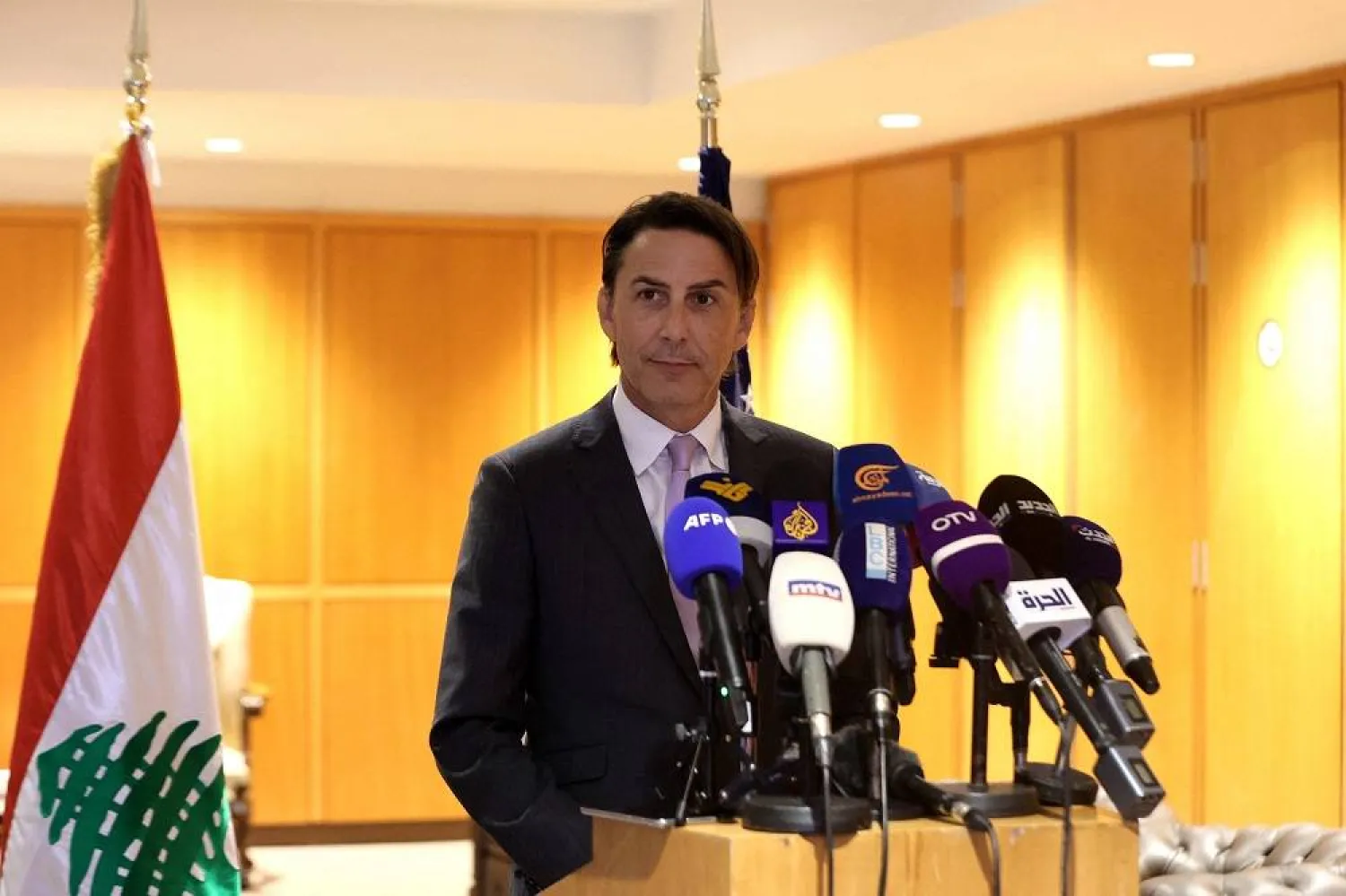A senior US envoy visiting Beirut said Thursday that Washington is looking into possibilities for solving a decades-old border dispute between Lebanon and Israel, a year after he brokered a deal on the maritime frontier between the two nations.
Amos Hochstein, a senior advisor to US President Joe Biden, also expressed disappointment with Lebanon's reluctance to implement reforms amid the country’s historic economic meltdown. He spoke to reporters at the end of a two-day visit to Lebanon during which he met with the caretaker prime minister, the Parliament speaker and other officials.
Hochstein last year brokered a maritime border deal between Lebanon and Israel paving the way for gas exploration in the area, in what many hope will eventually help pull Beirut out of its economic crisis. Lebanon and Israel have formally been at war since Israel’s creation in 1948.
Asked whether he is coming to mediate between Lebanon and Israel over their disputed land border, Hochstein said that he listened to the views of the Lebanese government, then visited the border area “to learn more about what is needed in order to be able to achieve an outcome.”
Hochstein added that he now plans to hear the Israeli view “and to make an assessment if this is the right time and if we have a window of opportunity to be able to achieve it.” He added that the US “always supports what enables stability and security.”
Caretaker foreign minister Abdallah Bou Habib told Reuters that Hochstein had said he would speak to Israel next and if both agreed, |America would be ready to work with us”.
The Shebaa Farms and the Kfar Shouba hills were captured by Israel from Syria during the 1967 Mideast war and are part of Syria’s Golan Heights that Israel occupied in 1981. The Lebanese government says the area, that has been a source of tension for years, belongs to Lebanon.
Lebanon has been in the grips of its worst economic and financial crisis in its modern history, rooted in decades of corruption and mismanagement by the country’s political class. Despite the fact that the crisis has been ongoing for nearly four years, the country’s ruling class has been resistant to reforms demanded by the international community in order to release billions of dollars in soft loans and investments.
Earlier in August, an offshore drilling rig arrived at its destination in the Mediterranean Sea off Lebanon’s coast and will start operations soon.
“I am optimistic. I’m always optimistic about what is possible in Lebanon, but I’m also impatient about the pace of reform,” Hochstein said. “I’m disappointed by all the lost opportunities.”
He added that “as Lebanon takes steps to put the country on the path toward economic growth and peace, it can count on the US for continued support.”
He added that the Lebanese people are hoping to see a president elected and a fully functioning government take office. Lebanon has been without a president since October of last year and is currently run by a caretaker government.
“The absence of empowered leaders has been detrimental to the country and it’s the people of Lebanon who have been paying the greatest price for the impasse,” he said.









